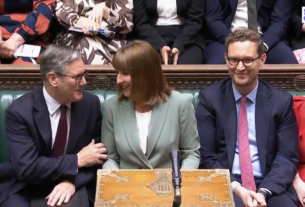Despite briefly leading the G7 in GDP growth earlier this year, the UK economy now faces a looming slowdown. With rising borrowing costs, persistent inflation, and public finances under strain, Chancellor Rachel Reeves is confronting a critical test. Her fiscal rules committing to fund day-to-day public spending through tax revenues and reducing debt as a share of GDP by 2029/30 are under growing pressure. According to Professor Joe Nellis, economic adviser at MHA, these constraints may no longer be sustainable without compromising key policy goals.
To avoid a deeper reckoning, experts suggest four bold strategies. First, Reeves may need to revisit fiscal rules, allowing for smart, long-term borrowing that prioritises investment in infrastructure and innovation stimulus that could generate future tax revenue and reduce debt burdens over time. Second, accelerating major infrastructure projects like the Heathrow expansion and Oxford-Cambridge corridor could boost productivity and employment. Removing bureaucratic delays could help unlock immediate economic benefits and private sector confidence.
A third solution lies in reforming pension fund regulations. By enabling more flexible investment in UK infrastructure, Reeves could unlock billions in private capital without increasing public debt, a strategy already proven effective in Canada and Australia. Finally, targeted tax reforms could raise revenue in politically viable ways. While personal tax hikes remain off the table, increasing levies on luxury goods, financial sector windfalls, or excess corporate profits could bolster public finances without undermining consumer sentiment.
As the UK’s debt-to-GDP ratio approaches 100% and annual servicing costs exceed £100 billion, the government’s margin for error is shrinking. According to Professor Nellis, the Chancellor may have no choice but to loosen her fiscal stance if she hopes to maintain growth and deliver on Labour’s public investment commitments. The choices ahead are difficult but delay or inaction may carry even greater long-term risks.




